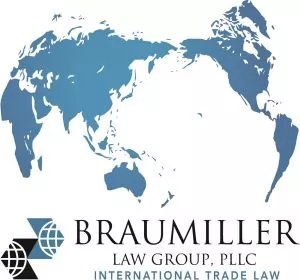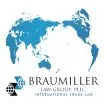- in United States
- with readers working within the Retail & Leisure industries
- within Energy and Natural Resources, Technology and Strategy topic(s)
Free Trade Zones ("FTZ") are being introduced into the United Kingdom ("UK") as part of the post-Brexit landscape. In a measure aimed at developing the UK's trade strategy, the Government announced the creation of eight new freeport zones in England. The selected locations are East Midlands Airport, Felixstowe & Harwich, Humber, Liverpool City Region, Plymouth, and South Devon, Solent, Teesside, and Thames. These freeports are expected to be fully operational in late 2021. Discussions are also being held between the UK Government and foreign officials to establish further freeports in Wales, Scotland, and Northern Ireland, but nothing has yet been confirmed.
What are Freeports?
Freeports, also known as Free Trade Zones, are specially
designated economic zones where normal tax and customs rules do not
apply. They are established physically within a country's
geographical borders, but outside of that country's customs
borders, and they are usually located at ferry ports, airports, and
rail ports. In such ports, goods can be imported, manufactured, and
exported again without facing standard tariffs, or requiring normal
customs checks. To illustrate the mechanism by which
freeports will operate in the UK, we may think of a company that
imports goods to be processed in the UK. These goods will be
subject to regular tax and customs rules. However, with the new
FTZ, the same company can now, import goods into the freeport
without paying tariffs, process them into a final good, and then
either pay a tariff on goods sold into the domestic market, or
export the final goods without paying the UK tariffs.
Why does the UK need Freeports?
As established in its announcement, the main intention of
the Government is to make the UK more attractive to foreign
investment. Trade between the United Kingdom and the European
Union was hammered in the first months of their new post-Brexit
relationship, with record decline in British exports and imports of
goods. With the introduction of these FTZs, UK officials expect to
promote and incentivize the regeneration of the economy and the
creation of new jobs in areas of the country especially deprived by
the consequences of the Brexit and the Covid-19 pandemic. As part
of the Government's commitment to stimulate the economy, these
freeports are expected to act as national hubs for global trade and
innovation.
Promoting trade is one of the main objectives of the UK. Freeports can offer benefits not only for the businesses within their zones, but also for the economy as a whole, and that is exactly what the UK needs. Companies that would particularly benefit will be manufacturers who import materials into the UK for processing which are subsequently exported from the UK. Transport, logistics businesses, and port operators should also benefit, as well as the local areas through increased investment and business activity.
While the biggest assets of the Freeports for companies may be the tariff benefits and the tax reliefs, businesses operating in freeports will be also authorized to use simplified import procedures. By undertaking fewer customs checks and less paperwork when goods are transferred from the freeport into the UK's domestic market, companies operating in the FTZ will be able to put their goods in the market faster and easier.
Freeports and UK's Trade Agreements: What is the
problem?
As we have analyzed in previous articles, the UK is
immersed in its strategy to sign Free Trade Agreements with
strategic countries that will guide its trade relations for this
new post-Brexit era. Recently, the UK announced new trade
agreements with 23 different countries which were received in the
islands as a relief after months of uncertainty. However, these new
trade agreements were negotiated before the implementation of the
freeports, and they include clauses that specifically prohibit
manufacturers in freeport-type zones from benefitting from the
deals.
To date, some companies in freeports in Britain will not get to enjoy the full benefits of the new tariff and tax-efficient zones if they are exporting to certain countries including Canada, Norway, Switzerland, and Singapore. While the UK continues to conclude other trade agreements, they now have the challenge of trying to renegotiate the agreements with these countries to include the FTZs.
Conclusion
The UK Government is trying to stimulate the economy after
the departure from the EU. Freeports are being received with
optimism in the UK, as many people will benefit from job creation
and innovation. While freeports are expected to begin working by
the end of 2021, the months following are going to be crucial as
British Officials will have to develop more solid legislation while
negotiating new Free Trade Agreements with strategic partners.
Check out our new Digital Magazine Get the inside scoop on the Braumiller Law Group & Braumiller Consulting Group "peeps." Expertise in International Trade Compliance.
The content of this article is intended to provide a general guide to the subject matter. Specialist advice should be sought about your specific circumstances.


